Washington Hedge Cutting Contractors (NE37): One of the jobs that many of us love to hate is cutting those garden hedges. It just appears to be the kind of task which people postpone as long as possible and then notice that the hedges have become so overgrown that cutting them back is much too difficult. Regular trimming will keep a hedge more compact and neater and will improve the overall shape and visual appeal. Additionally it is easier to accomplish if done regularly. The truth is of course that some homeowners aren't fit or able enough for doing this kind of physical work or do not possess the proper gardening tools to accomplish the job effectively. If this describes your circumstances you will have to fetch in some specialist help in other words a local Washington hedge cutting specialist or gardener. So that your hedges are cared for properly it is critical that you employ an individual who is knowledgeable and up to the challenge.
If you are thinking about calling in Washington hedge cutting specialists, make sure you get somebody that knows what they're up to. Quality hedges cost a considerable amount of money and you want to avoid yours being ruined by being cut improperly or at the wrong time of the year. An expert hedge cutting contractor will advise you with regards to the perfect time to cut back your hedge and the best way to get it done without damaging it.
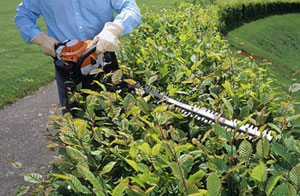
Its possible you may want your hedges cut into intricate designs such as archways or curves and if so, it is even more vital that you employ a skilled contractor to perform the work. Along with pulling up weeds and cutting the grass, most traditional gardeners will be perfectly happy to also care for your hedges, although hedges that are really high may require to be looked after by a tree surgeon with the proper equipment.
The trimming of a hedge, when completed properly, makes it healthy and strong by both strengthening the root system and encouraging new growth. It makes a hedge denser and in a better position to fight insect attacks and disease, so you can enjoy it for years to come. A strong and healthy hedge looks more attractive and does the job it's designed to do in your garden ie provide valuable shelter from sormy weather, form a boundary between yours and your neighbours garden and give you more privacy.

Hedges that aren't routinely maintained and cut tend to become straggly and top heavy with unsightly holes and a lack of leaves and foliage, particularly at the base. Routine trimming will keep your hedges compact and enable fresh shoots to fill those undesirable gaps.
Uncared for hedges will usually spread outwards, producing substantial areas of leafless twigs on the inside, and a disaparate hedge that takes up far more of the available space in your garden. When you do eventually have to cut it back, you are likely to finish up with unsightly bald patches, with just a mass of twigs. If you let your hedges to get into such a state they may never grow back again and will most likely take many years before they look in good shape once more.
You may at this point be curious about the cost of hedge trimming in Washington, and the truth of the matter is that hedge cutting prices in Washington are dependent on several factors including the size of the property concerned, what condition the hedges are in, whether you need the hedge waste to be taken away, how high the hedges are and the number of hedges that require trimming.
Hedge clipping is available in in Washington and also nearby in: Picktree, Fatfield, Birtley, Philadelphia, Lambton Park, Bournmoor, Lambton, Shiney Row, Barmston, Crowther, Harraton, New Herrington, Biddick, Armstrong, Hertburn, Penshaw, and in these postcodes NE37 1RD, NE37 1NL, NE37 1LT, NE37 1LP, DH3 1RE, NE37 1PR, NE37 1SG, NE37 1NY, NE37 1AY, and NE37 1GA. Local Washington hedge cutting specialists will most likely have the postcode NE37 and the telephone code 0191. Verifying this should make sure that you are accessing local providers of hedge cutting. Washington householders will be able to benefit from these and lots of other comparable services. By simply clicking on the "Quote" banner you can get hedge cutting price quotes from providers nearby.
Privet Hedges Washington
Privet hedges, recognised by their full foliage and orderly lines, are prevalently seen in Washington gardens. Frequently disregarded, these modest shrubs provide a range of benefits, rendering them a favoured option among both landscapers and homeowners. Presented here are just some of the many positives of privet hedges:
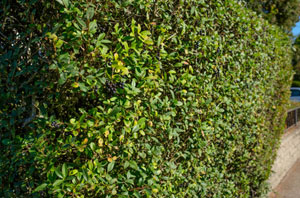
- Budget-Friendly Solution: Privet hedges are a cost-effective option in comparison to other screening methods such as fencing. They need minimal materials and ongoing maintenance, making them an inexpensive alternative.
- Low Maintenance: Privet hedges are known for their low maintenance requirements. They're relatively tolerant of different soil types and require minimal pruning to maintain their shape.
- Tolerant of Pollution: Privet hedges are surprisingly tolerant of airborne pollution, making them well-suited for urban gardens.
- Formal or Informal Styles: Privet hedges, depending on their particular variety and how they are pruned, can be tailored to fit formal, geometric designs or a softer, more informal aesthetic.
- Fast-Growing: Privet hedges are ideal if you need a rapid answer to privacy concerns. They grow quickly, allowing the establishment of a sizeable barrier in a comparatively short length of time.
- Noise Dampening: Especially for gardens in close proximity to busy roads or areas in Washington with a lot of noise, the lush foliage of a privet hedge provides a natural barrier to noise pollution.
- Wildlife Habitat: Though not teeming with wildlife, privet hedges do offer nesting areas for wild birds and a useful source of food - their black berries (be careful, these are mildly toxic to humans).
- Screening and Privacy: The lush foliage of a well-maintained privet hedge serves as a visual obstruction, ensuring privacy from both neighbours and passers-by and can be employed to hide less appealing parts of the garden.
The privet hedge, though unobtrusive, affords Washington gardens with extensive benefits such as privacy, screening, and the reduction of noise, requiring minimal care.
Hedge Trimming Tools Washington
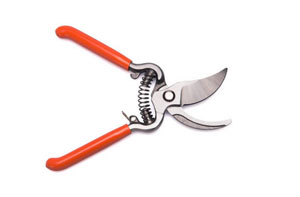
If you decide to cut back your own hedge you must ensure you have all the right tools to do the job. In order to avoid making a mess of your hedge, you'll not want to be using old, worn tools. Specialist hedge cutting contractors in Washington will already be kitted out with all the right tools, so if you choose to hire expert help you'll not have to worry so much about tools, though it is always helpful to have some handy. The essential tools that you'll need to do hedge cutting by yourself are: a robust ladder, telescopic hedge shears, extending lopping shears, pruning secateurs, a petrol or electric hedge trimmer and leather gloves. If you've already got or propose to invest in a set of garden tools such as this you'll be in a good position to trim your own hedges.
Bird's Nests in Hedges
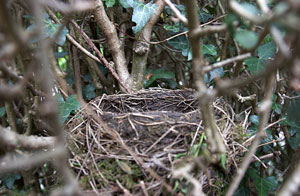
Another issue you'll need to be conscious of when you are considering trimming your hedges in Washington is legislation relating to nesting birds. The RSPB advises that between March and August, which is the breeding season, the trimming of hedges and trees should not be done. For many people this is exactly the time when they'd be cutting their hedges. Ever since the introduction of the 1981 Wildlife and Countryside Act, it has been a punishable offence "to intentionally destroy, take or damage the nest of any wild bird while it is in use or being built". Accordingly, to help to preserve our treasured wildlife, please make sure to check your hedges for bird's nests before trimming them back. (Tags: Bird's Nests, Nesting Birds, Bird Nests in Hedges)
Hedge Planting
The cultivation of hedges is an artistic process that turns gardens into verdant, secluded sanctuaries, while also promoting local biodiversity. This transformative practice starts with the selection of suitable hedge species, a decision that is dependent on the unique aspects of the garden and the local weather patterns. Dense, evergreen shrubs such as Yew or Privet are exemplary for creating privacy screens. For ornamental purposes, flowering species like Forsythia or Hawthorn can add seasonal vibrancy. Utilising native species is often the most effective strategy for enhancing the ecological health of your garden.
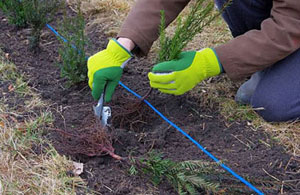
Effective hedge planting hinges on meticulous preparation. Key aspects of this include evaluating the site's sunlight exposure, the quality and type of soil, and the space available for planting. Amending the soil with organic matter is necessary to provide a rich, nutritious foundation for the plants. The most suitable time for planting is during the dormant season, generally from late autumn through to early spring. It's important to space the plants adequately for growth, ensuring they are planted at the depth of their root ball. A thorough initial watering is fundamental for the plants to establish properly.
Regular maintenance is vital to ensure the thriving of a hedge after it has been planted. This includes providing adequate water during dry seasons, mulching for soil moisture retention, and feeding the hedge annually with a balanced fertiliser. The role of pruning cannot be overstated; initial shaping pruning in the early years and regular pruning thereafter are essential to keep the hedge dense and in good health. In Washington, such a well-kept hedge not only boosts the garden's aesthetic but also acts as a wildlife habitat, playing a part in maintaining ecological balance.
Hedge Diseases Washington
Your hedge can be adversely affected by any one of many different diseases and pests. Generally speaking, spider mites, box blight, powdery mildew, winter moth caterpillars, aphids, vine weevil, phytophthora, fireblight, honey fungus and scale insects are the most prevalent issues, although different varieties of hedge experience differing diseases. These diseases or pests can trigger a variety of conditions in hedges such as leaf shedding, staining and maybe even the death of individual plants when badly affected. Most of these issues are very easily addressed by using the correct treatments and care procedures.
Leylandii Hedge Trimming Washington
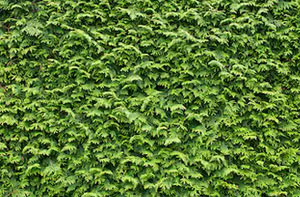
Screening your garden can be achieved easily by planting leylandii conifer hedges, but they do need frequent trimming to keep them in shape. It's perfectly possible to clip leylandii yourself, but you could damage the tree, or even kill it completely, if you do it incorrectly; so why not employ an experienced gardener in Washington to tackle the task for you?
A specialist will be able to offer a regular clipping and shaping of your leylandii hedging every 2 or 3 months in order to give it that "showhome" appearance. Leylandii are incredibly fast growing, and a regular trim will keep them from getting out of control and preserve those clean lines that leylandii hedges are known for.
A huge benefit when using a hedge specialist is the fact they're going to clean up and get rid of all the green waste afterwards to leave your garden in pristine condition. With their super fast growth rate, even a regularly scheduled trimming of your leylandii hedging can generate a significant volume of green waste that must be got rid of. By using a skilled specialist in Washington, you can relax, in the knowledge that the pain of keeping your leylandii in perfect form is entirely their responsibility.
Do I Need to Trim My Neighbour's Hedge in Washington?
The dilemma of whether you should trim a next door neighbour's hedge is interesting and will perhaps depend on what sort of relationship you've got with them. Some neighbours are incredibly accommodating in regards to hedges and will be willing to clip your side of the hedge while they are clipping their's. Some others are not gonna be quite as thoughtful and will leave it to you to tidy up your own side of the hedge. When push comes to shove you are legally entitled to cut any branches or roots of a hedge which grow onto your property from a neighbour's property or from a public road, and are creating a problem. However, you are only able to trim them back as far as the property boundary, if you go further you could be sued for damages. (Tags: Neighbour's Hedges Washington, Neighbour Disputes Washington, Hedge Disputes Washington)
When Should You Cut Back a Hedge in Washington?
When and how often you trim your hedges will depend upon their type and age and it's important to follow the recommendations to avoid harming them. When it comes to brand new hedges, they must be clipped during the winter time or early spring up until they are 2 or 3 years old. Once established hedges need to be cut back 2 or 3 times a year if you want to retain a good shape and density. Normal hedge clipping maintenance needs to be done in spring and summertime between the months of May and September. Different processes are required for particular hedge varieties, therefore before you cut back your hedge check with a specialist or look on the RHS (Royal Horticultural Society) website for the right advice. (Tags: Hedge Trimming Washington, Hedge Pruning Washington, Hedge Clipping Washington, Hedge Cutting Washington)
Hedge Types Washington
There are lots of species of shrub or tree which are used to grow hedges, and sometimes hedges consist of several species in which event they are referred to as "mixed hedges". If you throw hedgerows into the mix then the number of species grows exponentially. The kinds of classifications used to build hedges includes deciduous, coniferous and evergreen plants, with each classification having numerous different species. For hedges in gardens the most common species are box, beech, leylandii, privet, hornbeam, western red cedar, cherry laurel and English yew. You are able to add hawthorn, dog rose, hazel, oak, field maple, crab apple, rowan and more to this list if you also consider hedgerows.
Hedge Transplanting and Relocation Washington
In horticulture, the practice of hedge transplanting and relocation focuses on transferring established hedges from one spot to another. It is a procedure frequently engaged in for various motives, including landscape redesign, property development, or the rejuvenation of aging hedges.
Careful planning and execution are paramount for the success of hedge transplanting. This typically entails the removal of the entire hedge, including its root system, followed by replanting in the chosen location. The operation's outcome is influenced by factors like the transplanting season, species, hedge size, and root system health.
After relocation, transplanted hedges demand meticulous care and attention to ensure their survival. During the establishment phase in the new location, crucial tasks like adequate pruning, maintenance and watering come into play. While it may take some time for the hedge to fully acclimatize to its new surroundings, with proper care, it can flourish and maintain its role in offering privacy, enhancing beauty, and providing functional benefits in the fresh environment. Hedge transplanting emerges as a cost-effective and sustainable method to conserve and shift greenery while accomplishing desired landscaping objectives. (84573 - Hedge Transplanting and Relocation Washington).
Hedge Cutting Tasks Washington

Washington hedge cutting contractors will likely help you with quickset hedging, hedge tidying, hedge and tree removal services, domestic hedge maintenance, regular hedge maintenance, shrub and hedge lopping, fancy hedge cutting, honeysuckle hedge pruning, overgrown hedge trimming, commercial hedge maintenance Washington, ficus hedge planting Washington, instant hedging, hedge waste removal in Washington, hedge shaping, hedge landscaping Washington, wood chipping and other hedge related tasks in Washington, Tyne and Wear.
Hedge Cutting Near Washington
Also find: Picktree hedge cutting, New Herrington hedge cutting, Barmston hedge cutting, Birtley hedge cutting, Shiney Row hedge cutting, Penshaw hedge cutting, Armstrong hedge cutting, Lambton hedge cutting, Bournmoor hedge cutting, Biddick hedge cutting, Fatfield hedge cutting, Philadelphia hedge cutting, Crowther hedge cutting, Harraton hedge cutting, Lambton Park hedge cutting, Hertburn hedge cutting and more. In all of these places, the crucial task of hedge maintenance is efficiently handled by experienced gardeners and dedicated hedge cutting specialists. Such professionals, often unnoticed, play a pivotal role in enhancing the ecological equilibrium and visual appeal of their communities, making them unsung heroes of local greenery. Hedge cutting specialists possess the know-how and expertise required to transform untidy hedges into neatly-manicured, visually pleasing boundaries. Local home and property owners can hedge cutting quotations by clicking here.
Washington Hedge Care Services
- Washington Hedge Planting
- Washington Hedge Shaping
- Washington Hedge Lopping
- Washington Hedge Removal
- Washington Hedge Trimming
- Washington Hedge Care
- Washington Hedge Pruning
- Washington Tree Pruning
- Washington Hedge Maintenance
- Washington Shrub Pruning
- Washington Hedge Reduction
- Washington Hedge Makeovers
- Washington Hedge Inspections
- Washington Hedge Spraying
You could also be in need of landscape gardeners in Washington, pond maintenance in Washington, fencing contractors in Washington, lawn mowing in Washington, gardeners in Washington, patio cleaning in Washington, waste removal in Washington, garden designers in Washington, planting services in Washington, garden clearance in Washington, artifical grass in Washington, garden shed builders in Washington, driveway specialists in Washington, garden decking in Washington, tree surgeons in Washington, soil irrigation in Washington.
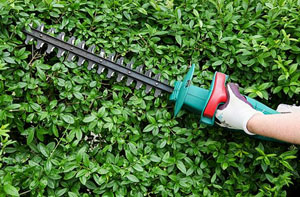 Hedge Cutting Washington
Hedge Cutting Washington Hedge Planting Washington
Hedge Planting Washington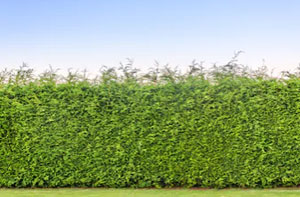 Hedge Trimming Washington
Hedge Trimming WashingtonTo read local information on Washington, Tyne and Wear check here
Hedge Cutting Jobs Washington: Find hedge cutting jobs in Washington here: Hedge Cutting Jobs Washington
More: Hedge Shaping, Hedge Maintenance, Hedge Planting, Hedge Care, Hedge Pruning, Hedge Height Reduction, Hedge Pruning, Hedge Cutting Services, Hedge Lopping, Cheap Hedge Cutting, Hedge Maintenance, Hedge Care, Cheap Hedge Cutting, Garden Hedge Cutting, Hedge Trimming, Cheap Hedge Trimming, Hedge Reduction, Hedge Lopping, Cheap Hedge Trimming, Cut Hedges, Garden Hedge Cutting, Hedge Removal, Hedge Care Experts, Hedge Care Experts, Hedge Height Reduction, Hedge Clipping, Hedge Pruning, Hedge Reduction, Hedge Clipping, Hedge Trimming Services.
Hedge cutting in NE37 area, (dialling code 0191).



